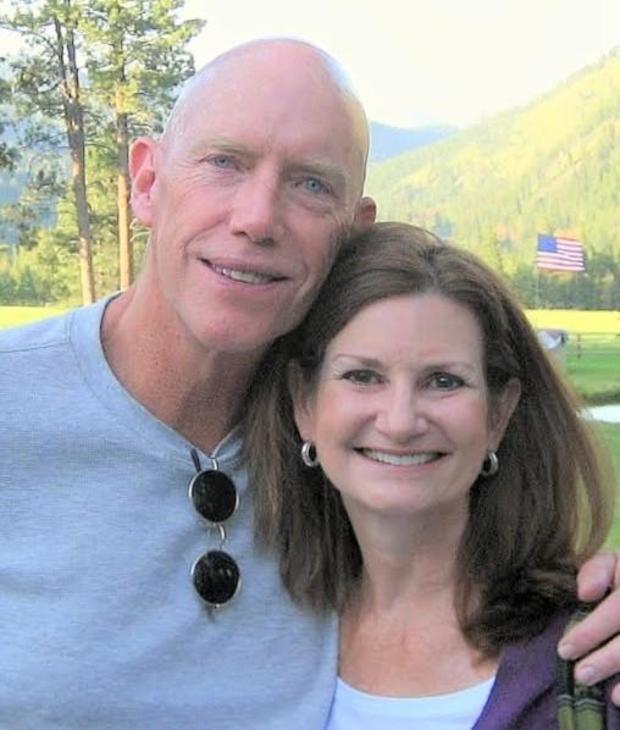American "economic refugees" are increasingly retiring abroad
Cynthia and Edd Staton are thoroughly enjoying retirement in their 3,000 square-foot penthouse apartment. They have a housekeeper, eat out frequently, never fret about health care costs, and indulge in yoga classes and visits to the gym. It's a fine way to spend their golden years — in Ecuador.
The Statons said the decision to retire outside the U.S. came in the wake of the financial crisis a decade ago, when their retirement nest egg lost value and they were faced with retiring at a lower standard of living than they had expected. More Americans have followed their lead. The number of retirees who draw Social Security outside the U.S. jumped 40%, to more than 413,000, between 2007 to 2017, according to the Social Security Administration.
To be sure, that's a fraction of the nation's 42 million retirees. But it reflects the financial realities for a growing number of baby boomers who are hitting 65 without enough money stashed away to maintain their standard of living. The median retirement savings for people in that age group is $152,000 — the highest of any working generation — but 1 in 5 say they haven't yet recovered from the recession and never may, according to the Transamerica Center for Retirement Studies.
"It's a slow-motion train wreck, and we are in the first car of the train," said Edd Staton, who lived in Las Vegas before moving to Cuenca, Ecuador, in 2010 and now with his wife blogs about retiring abroad. "It takes a long time to get to the caboose. There is nothing in place that will make this go away."
He believes more retirees may be living outside the U.S. than reflected in the Social Security Administration statistics because some, like him, deposit their Social Security checks in U.S. bank accounts. ATMs make it easy to withdraw cash in Ecuador, Staton noted.
Asia, Europe, and Central and South America are proving to be popular locations for American retirees who want to bail from the U.S. The decision often boils down to such factors as cost of living, health care options and whether there's an expatriate community.
"Economic refugees"
Americans who opt to retire outside the U.S. are driven by different motivations, said Dan Prescher, senior editor at International Living, a publication geared to people who want to live or retire abroad. Prescher and his wife, originally from Nebraska, now live in Mexico, where they were drawn because of the better weather.
Some are baby boomers who "now can have that great adventure they always wanted," he said. Others are what the Statons describe as "economic refugees," or Americans who are worried about managing retirement on a limited budget.
"Their idea of what they could afford in retirement isn't matching reality," Prescher said about retirees who move abroad because of finances. "No one knows what will happen with health care in the U.S. — it's hugely uncertain."
Even though Americans who are at least 65 are covered by Medicare, out-of-pocket health costs for retirees are mounting. The typical couple will need a total of $285,000 to cover health expenses in their retirement decades, according to a Fidelity study published earlier this year. Medicare doesn't cover all health care costs — excluding most dental work and long-term care, for instance — and it can come with co-pays and other out-of-pocket expenses for doctor visits and medications.
Cheaper health care
A big issue for retirees living abroad is getting health care coverage, which can typically be gained through securing residency status within a foreign country, the Statons said. They pay about $80 a month for Ecuador's national health system, although they also maintain Medicare coverage for when they return to the U.S. to visit family.
Overall, health care costs are significantly lower in Ecuador, with the Statons noting that a dental crown costs about $200, compared with more than $1,000 in the U.S.
Other countries have similar opt-ins for foreigners who retire within their borders. Portugal, for instance, allows legal foreign residents to take advantage of the public health care system, according to Live and Invest Overseas, another publication about expat living.
Living on $2,000 per month
Joining a national health care system in a country with lower medical prices than in the U.S. can help lighten the impact on the wallet. Overall, moving abroad can allow a form of financial arbitrage, with Americans living on Social Security and retirement savings paid in U.S. dollars, which they can spend in countries with a lower cost of living.
The Statons have a monthly budget of about $2,000, including the roughly $700 per month they pay for their penthouse apartment. The typical rent in the U.S. stood at almost $1,500 a month in August, according to the website RentCafe.
Of course, moving abroad isn't for everyone, given the language and cultural differences, while the idea of moving far from family and friends may not be appealing to some. But both Prescher and the Statons believe the financial challenges of retiring in the U.S. will drive more Americans abroad.
"Being an economic refugee is going to be more and more popular as things get weirder and more expensive in the U.S.," Prescher predicted. "You should move abroad because you want to try a foreign culture. The economic benefit is icing on the cake."




